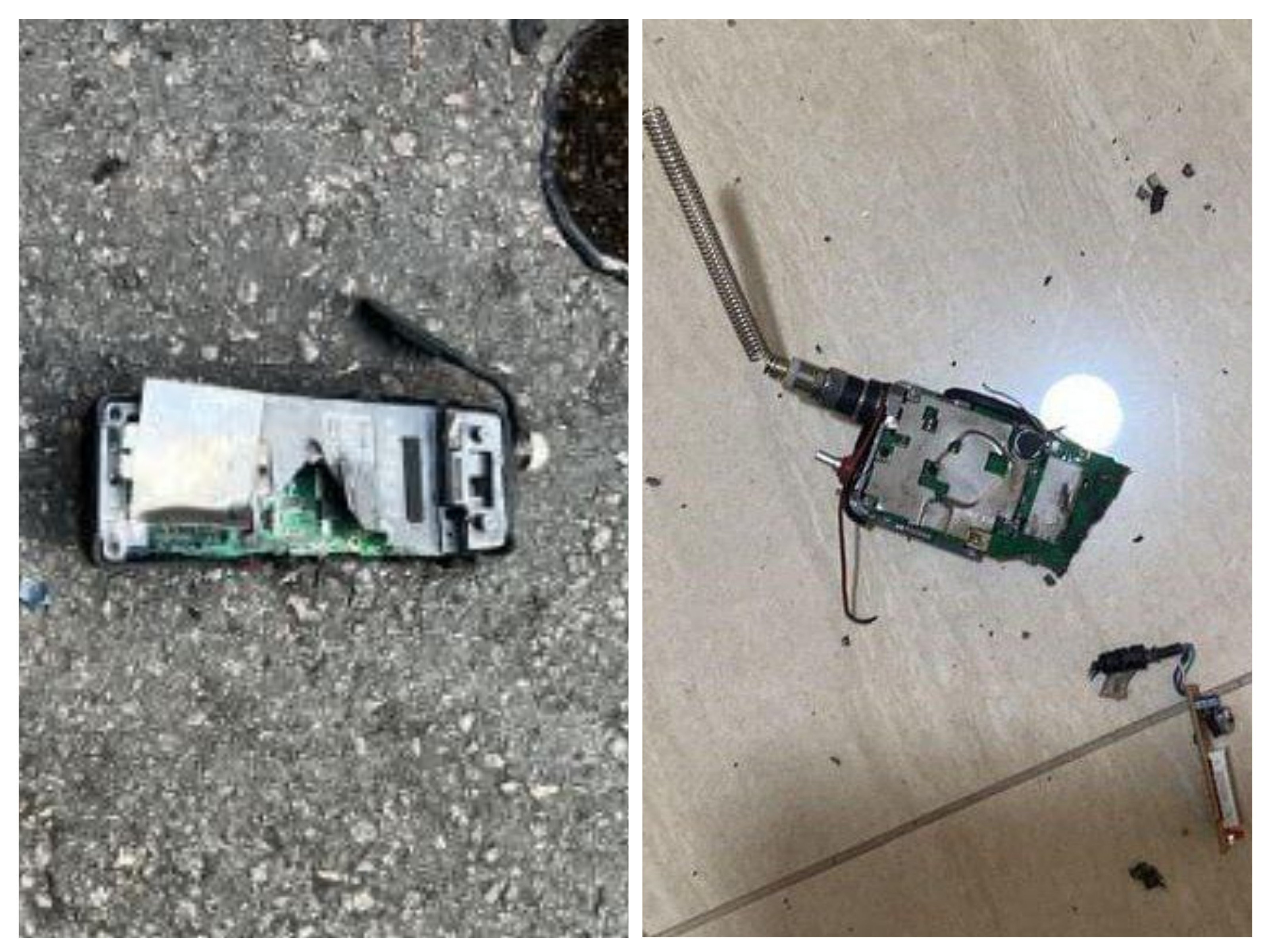Article title updated
Iran’s Ambassador to Lebanon Loses One Eye, Seriously Damages Other in Pager Explosion, New York Times
Mojtaba Amani, according to the publication, is being evacuated to Iran for treatment. It is noted that before the explosion, the pagers emitted a beep, which prompted many to bring the devices to their faces.
The attack was probably carried out by Israeli intelligence services, which planted explosives in about 5,000 pagers, Reuters reports. Of these, about 3,000 exploded. A senior source in Lebanon told the agency that the devices were planted by the Israeli spy service “at the production level.” “The Mossad inserted a circuit board containing explosive material into the device, which receives a code. It is very difficult to detect by any means. Even with any device or scanner,” the source said.
The day before, 4,000 people were injured in Lebanon, 11 of whom were killed as a result of pager explosions. Reuters writes that hundreds of members of the Lebanese armed group Hezbollah, including fighters and medics, were seriously injured due to explosions of pagers, which they use for secret communication.
A second wave of explosions today




I’m kind of guessing, from the strength of the explosion in the video – it really was a small explosion, not bursting into flames – that somehow rigged pagers were inserted into Hezbollah’s equipment prior to distribution to operatives.
But if this was, instead, some kind of remote software compromise of battery management system firmware for lithium batteries, now I have one more thing to worry about in my life, with all the devices with lithium batteries I have.
looks warily at laptop on my chest
EDIT: Strengthening my concerns, in the CNN article I linked to in my other comment, the devices were termed “hacked” by Lebanese internal security forces. Now, okay, that’s a report immediately after the event, and I don’t know how much time they have had to actually do analysis. Or if they’re right. But:
…it sure doesn’t assuage my concerns at all. Even if you couldn’t make a BMS discharge lithium batteries hard enough to explode, you definitely can make them do so hard enough to make a pretty unpleasant fire. You do that with numerous laptop-sized devices all over a country, that’d potentially be a pretty unpleasant event.
sighs
Maybe it’s possible to mandate that lithium-ion devices conforming to some sort of safety certification standard, like UL or something, have non-updatable-firmware hardware putting a physical limit on discharge rate. I don’t think that that’d add too much cost or too many restrictions to devices.
EDIT2: From this YouTube video, it sounds like as long as you’re not using sketchy battery cells in the device you’re building, that battery manufacturers already take this into consideration via a blowout hole:
All that being said, I wouldn’t be surprised if I have some devices with sketchy cells…but my guess is that at least in my collection, when it comes to large-battery-capacity, Internet-connected devices capable of firmware updates, stuff like laptops, they’re probably – hopefully – using legit battery cells.
I don’t believe small lithium batteries can explode like that. Not even big car batteries explode like that. They make a big fire but not this kind of explosion.
Either explosives were implanted somehow by IDF in the supply chain, or Hezbollah is crazy enough to put explosives there, just in case the devices fall in enemy hands, and IDF learned that and trigger the explosions remotely.
Supply chain makes the most sense. It’s not like pagers are used super commonly and I doubt they have good margins. Would be pretty easy to sneak something in.
The scary thing about a supply chain attack is that Hezbollah aren’t idiots. This is basically like buying a “burner phone” (that name will now have different connotations now).
In the movies, people buying burner phones go to a random corner store and buy a random phone off the shelf. That way, even if they’re under surveillance, the cops / CIA / FBI can’t pre-bug the phone because they don’t know which corner store the person’s going to go to, let alone which phone they’ll pick off the shelf.
If you’re an armed group in Israel’s crosshairs, you’re going to take similar precautions when buying thousands of pagers. The safe way to do it would be to slowly and unpredictably get a small sample of ones that are being sold to the general public. If this is true, it could mean that there are tens of thousands of pagers out there that contain explosives that were merely sold as “decoys” in order to try to make Hezbollah feel safe in buying them. In other words, there may be tens of thousands of explosives in pagers that weren’t activated because they weren’t in the hands of Hezbollah when Israel decided to hit the button.
If it’s an 18650, which is a pretty common small lithium cell, it looks like it can. Here’s one exploding after being shorted:
https://www.youtube.com/watch?v=iDaPP-dI9dE
That being said:
The cells cannot themselves have current regulation sufficient to avoid a fire or explosion. My vague understanding from past reading is that typically, if you buy an 18650, it’ll have internal regulation, but not all do – it adds to the cost and reduces capacity. But you’d only want an unregulated 18650 if you were putting it in a device that you would trust to regulate the thing. I believe I was reading about it in the past in the context of high-end flashlights that took removable 18650s, was telling people not to try and use unregulated 18650s, as then you’re trusting the flashlight’s firmware to properly limit the discharge rate.
The battery would have to be the first point to go if the external BMS circuitry just let the thing discharge as quickly as possible. Like, if you had small-enough connections or something, I’d imagine that they’d melt first, act like a fuse.
From the video I read above, lithium batteries from reputable manufacturers tend to have blowout holes to prevent exactly this – if the electrolyte starts to boil, then they’ll start venting vapor. They may catch fire from the heat, but it should prevent the pressure buildup from reaching the point where the battery explodes. They say that counterfeit cells may not have vents that work correctly.
So I can believe that there are devices out there at risk. But I would guess that most devices probably aren’t. That is, you could maybe make devices catch fire, and that could be bad if done at mass scale at the same time, but probably most wouldn’t explode.
Even on that above 18650 that exploded, you could see vapor coming out prior to the explosion. According to that video I linked above about exploding lithium batteries, it sounds like the issue is more that on some counterfeits, the pressure release system doesn’t work properly rather than that it doesn’t exist at all – I didn’t quote the text, but they went more into depth on it after the bit I quoted. But I suppose that if there were no presssure release at all, that it could probably get more pressure buildup before exploding.
If the device in my pocket started smoking like that, I’d throw it away pretty quickly. I suspect these were actual explosives, and there are almost certainly more of them out there.
You’re linking to an EV battery on the idea that a pager would use it?
You mean an 18650? An 18650 is a small cell, in the neighborhood of the size of an AA battery, that is used in all kinds of electronics, including small consumer electronics. They can be used as a basic building unit for larger battery packs – if you take apart a lithium powerstation, you can probably disassemble it and find 18650s. It may be that some EVs build packs from 18650s, and I’m sure that ebikes will, but they aren’t specific to EVs.
You’re right. The article I read had listed typical uses as EVs and personal mobility without saying anything about their size. Looking up actual pager batteries. I do see similar dimensions and similar weight, so it’s plausible they would explode similarly
Honestly, I’m not saying that I’m sure that that’s what it is – I listed both sabotaging equipment before distribution and this. Just that it’s possible to make them explode, and you have the quote from the Lebanese internal security people saying that they were “hacked”, which would indicate that it’d be the battery, because nothing else in a pager can do that. They might be wrong, of course – it just happened and they cannot have had a lot of time to examine them.
I don’t care all that much about sabotaged equipment – my electronics aren’t likely gonna have bombs built into them.
I’m a lot more concerned about the possibility of weaponizing the BMS on devices with lithium batteries. Like, there are a whole lot of those out there, and a whole lot of parties who might want to attack other parties via that route. It’s not an attack vector that I’ve thought much about, but it’s a big enough one that I’m not entirely sanguine about having devices with God knows what security on their BMS floating around.
Plus, the fire factor is honestly pretty bad on its own. Like, the explosion isn’t huge. Whatever the cause, in both the video I linked and the pager explosion video, we aren’t talking about a hand grenade or anything. Would really have to have the device on you for it to likely be a serious problem. But if you have some IoT device somewhere sitting around flammable material unattended, especially if lots of devices go off at the same time so that the fire department cannot respond to any one…shrugs That’s kind of a concerning thought.
Israeli secret services used exploding phone previously, it’s not a stretch to assume that they tapped into supply chain of pagers and brought a pallet of pagers with a low tens of grams sized bomb inside
also lithium batteries don’t explode like that
I wonder whether they exploded exactly at the same time. If so, it seems less likely it would have been an attack via the batteries since you wouldn’t expect them all to heat up and explode at the exact same rate.
tal: how can i make this to be about mee?
don’t put plastic explosives in electronics of your choice that’d be pretty safe i guess